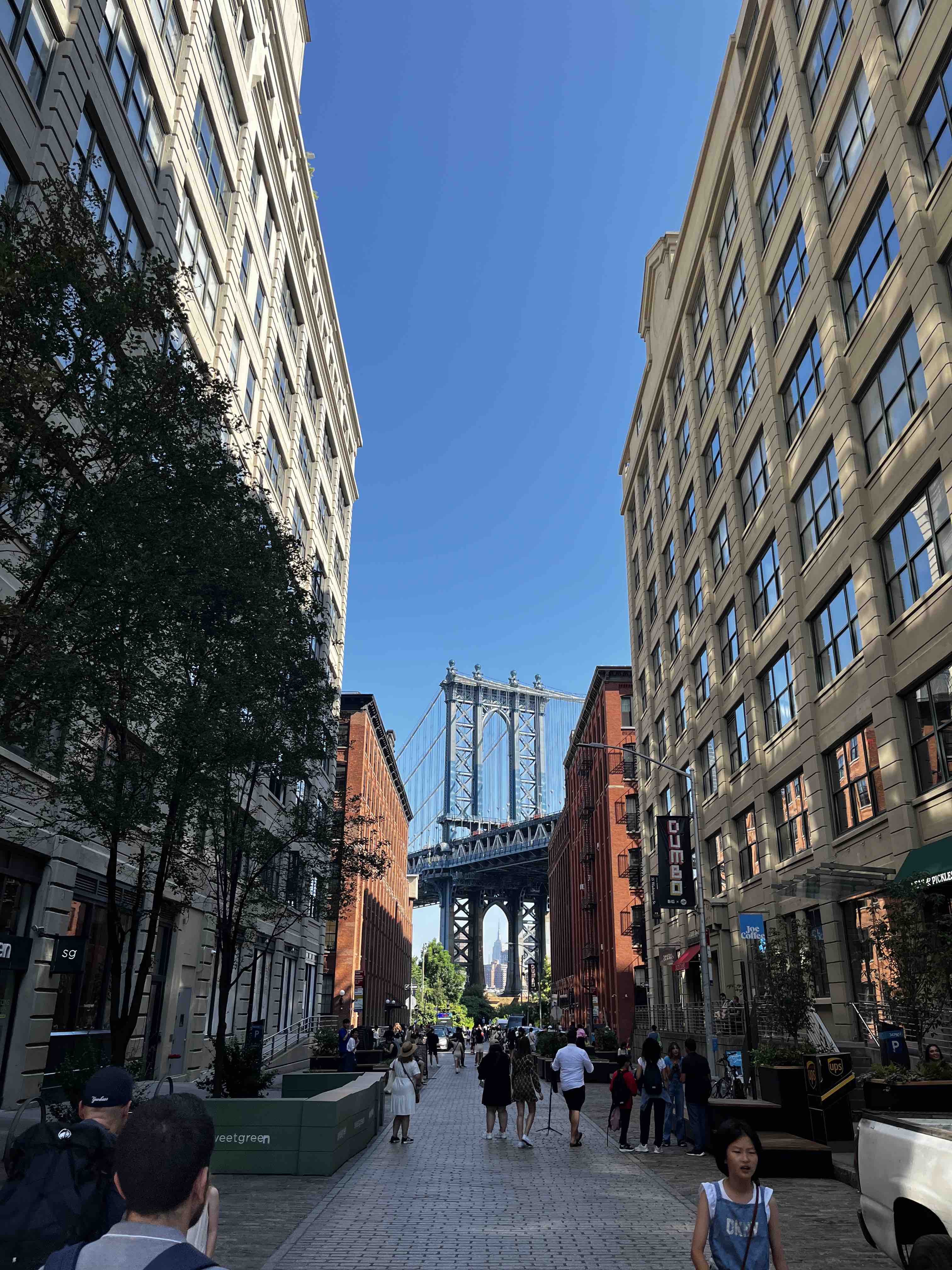.png)
This is going to be my last co-op post! Let’s dig in
My journey of getting into Ramp
I first heard about Ramp in the fall of 2021 after one of my seniors interned at Ramp. It sounded like a pretty intriguing company with an incredible company growth rate, so I decided to apply. At the time, I was deciding between Twitch, Ramp and another company and chose to go with Twitch as I wanted to learn about distributed systems.
After my Twitch internship, I again started to look for co-ops, but this time, I was thinking about potential companies that I would want to return to for a full-time job. As I mentioned in my previous co-op post, I was looking for high growth companies that are laser focused on creating useful products in the world. Furthermore, I wanted to try out a company in New York to see if New York is a potential place that I would want to live in long-term.
Ramp was one of the very few companies that met my criteria, so I decided to give it another shot. Given that I had already received an offer for Ramp for a previous season, my interviews were relatively light. Ramp’s interview process is not focused on Leetcode and instead focuses on practical software engineering skills, such as working with APIs & DBs, testing and clear communication. Overall, it was a very refreshing process compared to other companies that I had interviewed at. Eventually, I managed to pass the interviews again and accepted an internship offer starting in May 2023.
Some of the readers might be wondering how I managed to do a summer co-op as my 6th co-op. For my non-SE readers, the SE program usually has their 5th co-op in the winter and the 6th co-op in the following fall. However, as SE Soc president the year before, I managed to campaign successfully to allow students to switch sequences in their last year, such that their 6th co-op can be in the summer instead. This is a huge win for SE students and provides extra flexibility for all of us.
Growth Engineering at Ramp
As one of the fastest-growing startups in history, I wanted to understand how Ramp has managed to build a system to generate ever-increasing revenue and virality. I was especially intrigued by how engineers play a role in growth, as most companies rely on marketing for growth instead. Given my past experience in PM at Clearco, growth engineering sounded like a perfect fit, so I gave it a shot this summer.
Now that I have gone through a growth engineering internship, I understand how hard it is to define the role. The best way to describe growth engineering is doing whatever it takes to help the company grow. Some examples of growth engineering include:
- Building virality into websites
- Improving outbound & inbound sales performance
- Supporting customer success functions to improve activation
- Scraping data to better understand customers and competitors
I was mostly focusing on initiatives to improve our outbound sales performance (outbound sales refers to sales where a sales rep reaches out to a customer as opposed to inbound sales, where customers indicate interest first). This was an incredibly eye-opening internship. I learned so much about how sales performs, incentive structures, and how to run growth experiments. All of these are so invaluable for someone like me who might want to start a business in the future.
One thing to note is that growth engineering is probably the hackiest type of engineering that I know. Given the ephemeral nature of experiments, shipping velocity is highly prioritized. This is simultaneously exhilarating and anxiety-inducing. There were numerous times where I shipped a half-baked concept and fixed it in production instead of waiting to ship the fully baked product. At Ramp, time is something we cannot afford, so we need to ship extremely fast.
Overall, I had a blast doing growth engineering. I would highly recommend students to expose themselves to growth teams at high-growth companies as this is where a part of the magic of a startup occurs.
Life outside of Ramp
I would say that this summer was hands-down the best summer I’ve had. Living in New York during the summer is absolutely incredible. There are lots of things to do; I did the following:
- Went to a few music festivals/shows (Head in the Clouds, Excision, Boiler Room)
- Learned a bunch at several different museums
- Barbenheimer
- Exploring Central Park, Prospect Park and Washington Heights
- Visiting relatives in Long Island
- Eating at countless different places
Overall, I have to say that I like New York a lot more than SF for a few different reasons:
- Diversity: It’s not just tech workers; there are people in finance, real estate, acting and many other professions. I’ve also met people from all different cultures, which is somewhat harder in SF.
- Vibrant: SF feels a little dead at times, especially considering the night life and weekend activities. Maybe I didn’t try hard enough but I found that making plans in SF is always hampered by this. New York is the complete opposite; there are lots of things to do well past the wee hours of the morning. There is a much stronger community feel compared to SF.
- Transit: I didn’t understand why everyone raves about NY transit until I tried it out. The subway plus the countless other transit systems in New York make getting around stress-free and easy. SF, on the other hand, is not very well connected and transit can get a little sketchy
- Family and community: There are lots of people in my community in NYC, so it makes it feel a little bit more like home.
Overall, the living costs of SF and NY are roughly the same, but I felt that I was getting a lot more out of NY compared to SF. After this summer, I am pretty certain that I would love to live in NYC sometime after I graduate. Enjoy a sample of pictures that I took this term

.jpg)


Reflections and Lessons
My time at Ramp was nothing short of extraordinary. For someone who is interested in building their own venture some day, Ramp was a masterclass on how to execute. Some specific things I had learned:
- Invest deeply into code velocity: One of Ramp’s edges over its competitors is the execution speed and quality, and engineers are uncompromising about reducing this break-neck velocity. During my internship, a certain part of the codebase had tests running that would would block deployment for up to 30 minutes; some engineers banded together over the weekend to bring the test time down to less than a couple minutes. Every minute saved leads to many engineer-months saved. Ramp’s strong focus on execution is partially why we have been able to grow so fast. As an intern, this led to me having to reduce distractions to a minimum in order to ship at a rate reasonable for Ramp’s standards. It requires getting used to (especially if you are from big tech) but it’s nonetheless exciting.
- Think before committing; full send after: Ramp spends a lot of time thinking about whether a concept is worth shipping beforehand. We interview customers, review business metrics, explore several different options, and only then do we move forward. Part of this is because time is so valuable; we cannot afford going down the wrong path. For example, many of our growth experiments went through a stringent ROI analysis before any engineer worked on it. It was interesting to see the inputs into such analyses and has definitely helped improve my business acumen. Once a decision has been made, then we revert to shipping as fast as possible.
- Incentives are everything: I didn’t really understand incentive structures until I got to Ramp; that’s probably because most of my other internships were focused on building my craft rather than thinking about the broader business. As a growth intern, I got unprecedented access to how outbound sales is structured and how different incentives can lead to unpredicted outcomes. This is an area that I am now greatly intrigued by and I really want to learn how leaders create incentives to motivate the right behaviour and outcomes.
- Sales is incredibly difficult: If any intern has the opportunity to shadow a sales person, do it. After reading hundreds of outbound sales emails and listening into a dozen sales calls, I can confidently say that sales is one of the most difficult roles at a company. Imagine sending out hundreds of messages and touches to individuals and either getting ghosted or getting rejected. It takes an insane mental fortitude to continue soldiering on. I got to learn some tricks of the trade that sales people use to improve their outcomes, which was very interesting.
- Make connections with people outside of your team: This was actually something I learned at Databricks but I wasn’t able to follow too well. I tried being more intentional about making coworker friends from different teams this summer and it worked out great! Why is this important? Having coworkers from different parts of the company helps you get a more complete view of the business. It helped me a lot to identify which teams in a company are growing and which ones aren’t. I mainly made connections with people from different teams by just sitting around new people, meeting coworkers at happy hours and taking part in a hackathon.
I would strongly recommend interns to look at Ramp as a potential place to try out software engineering. I learned a huge amount, especially about the non-technical side of Ramp. If you’re looking for a high-growth company with talented folks who care about the product they ship, this is the place to be.
Edit: my manager wrote a blog post as he left Ramp, which I think is a great summary of the role.